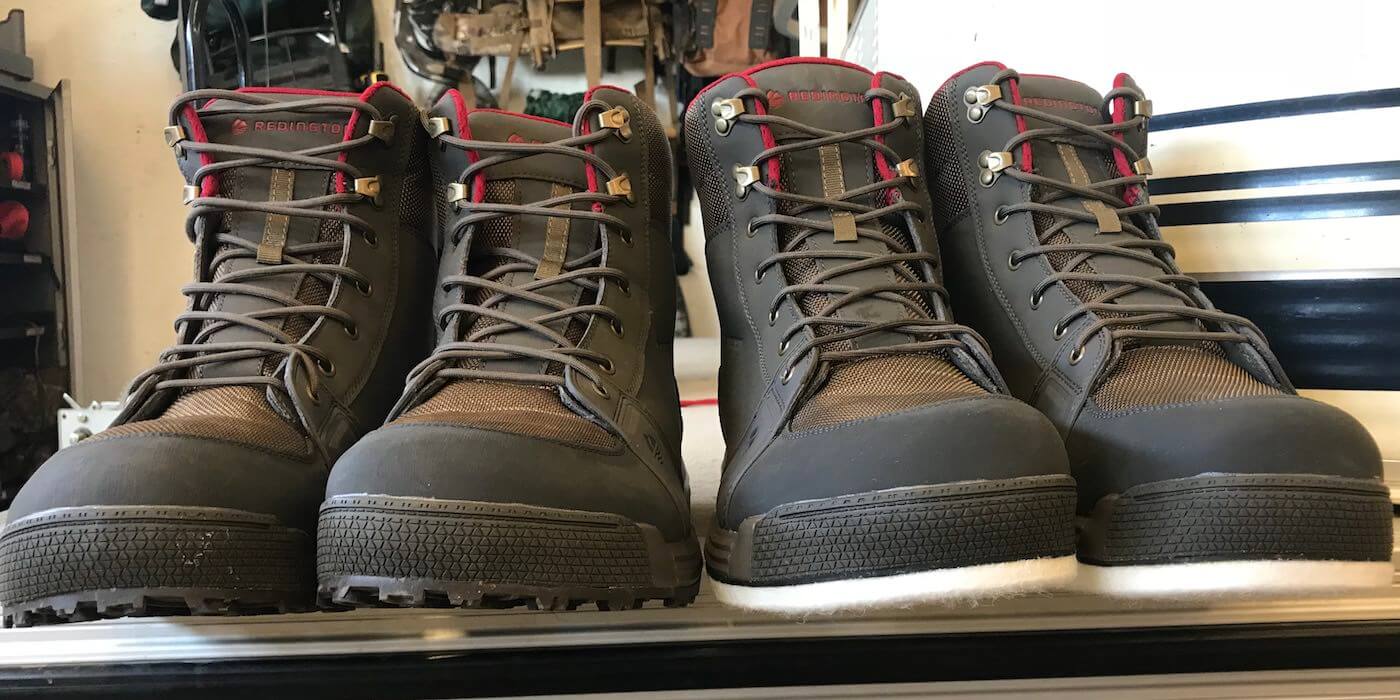The Redington Prowler Felt Wading Boots offer outstanding grip on slick rocks. They’re comfortable and supportive yet surprisingly lightweight.
Note: Redington has discontinued the Prowler and has instead created the new and improved Redington Prowler-Pro Wading Boots — check out our Redington Prowler-Pro Wading Boot Review for more detail.
To get us a closer look at the felt-soled version of Redington’s Prowler wading boots — and to compare them to the sticky rubber version — Redington sent us a review pair. This is what we learned:
Redington Prowler Felt Wading Boots Review
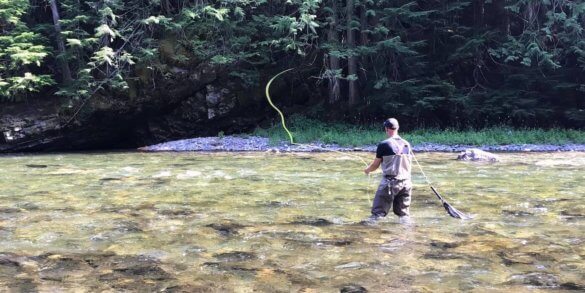
The Redington Prowler Felt Wading Boots are great wading boots with an excellent price-to-value ratio. The boot overall is stable but also nimble, offering solid ankle protection that doesn’t feel restrictive. I could walk over uneven ground, wet or dry, with confidence.
I primarily wore these for a week in August while fly fishing on the St. Joe River, which is a clean and clear cutthroat trout stream. Because the days were well into the 80s, I often wore these boots without waders.
I did not have a set of neoprene wading socks with me, so when I wore them with cotton socks, they were a bit large and sloppy. When I wore them with some Redington Sonic-Pro HD stockingfoot waders, the fit was perfect.
One of the great things about the boot is how stable it feels underfoot — it has a fairly wide base and roomy toe box, so that might help with stability. In addition, it bends at the forefoot just enough to make it feel like the boots are working with you.
Redington Prowler: Felt vs Sticky Rubber
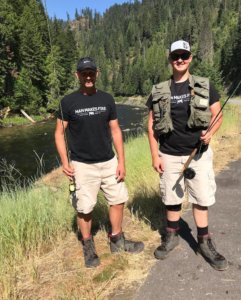
Felt has always been one of the best soles for wading boots. If you’re new to fly fishing, felt seems counterintuitive compared to rubber-lug soles for traction, but felt soles just grip like nothing else. Even on loose dirt, sand and gravel, felt soles offer very good traction.
But how does the felt compare to Redington’s sticky rubber sole in the exact same boot in the exact same size?
My son and I compared the two sets of boots over our week-long fishing trip — we wear the same size — and the felt-soled version was a clear winner for overall traction.
The sticky rubber soles were ten times better than say, a tennis shoe, but when we planned to wade deep in faster currents, we very much preferred the felt versions.
For myself, when using the felt soles, I pretty much stuck to the rocks with hardly any slip — even when I waded into precarious situations.
As for my son, after we had waded through a long and tough run where he wore the felt versions, he noted, “These boots do not feel slippery at all on the wet rocks. I fell eight times in this spot last year and I haven’t fallen at all this year!”
It could be that my son has matured when wading this year over last year, but I still attribute his lack of falling to the Redington Prowler Felt Wading Boots.
Redington Prowler Wading Boots: The Verdict
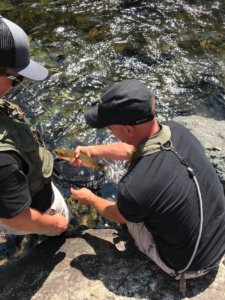
While we haven’t used these boots over a long period of time in different streams at different times of the year, it’s pretty clear that the felt versions offer better slick-rock traction than the sticky rubber versions.
On the other hand, some states have regulations that ban felt wading boots. Why? The fear is that invasive species and certain types of vegetation can become lodged in the felt and then get transferred to new rivers or lakes. If you clean and thoroughly dry or disinfect your felt boots before moving to different streams or lakes, this isn’t much of a problem, but if your state has banned felt, you don’t have a choice: Get the sticky rubber Prowler Wading Boots and wade more cautiously.
Incidentally, you can install studs on the rubber soles, and while we didn’t try that on this fishing trip, adding studs definitely improves traction.
As for the overall Prowler Wading Boot design itself, it is clearly a great wading boot. The sizing — with a neoprene wading sock or stockingfoot waders — is spot on, if just a bit roomy. The shape and materials of the boot result in a great overall fit that lets you cover all sorts of ground, wet or dry, with confidence. Very highly recommended.
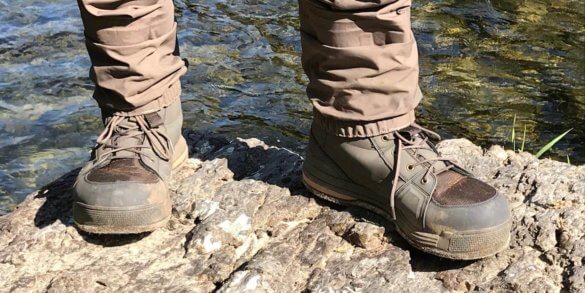
Get the Gear:
Redington Prowler Felt Wading Boots
Check shipping/pricing: Amazon | AvidMax | Cabela’s
- Redington Prowler Sticky Rubber Wading Boots
- Redington Goat Head Wading Boot Spikes
- Redington Siren Felt Wading Boot (women’s version of the Prowler)

